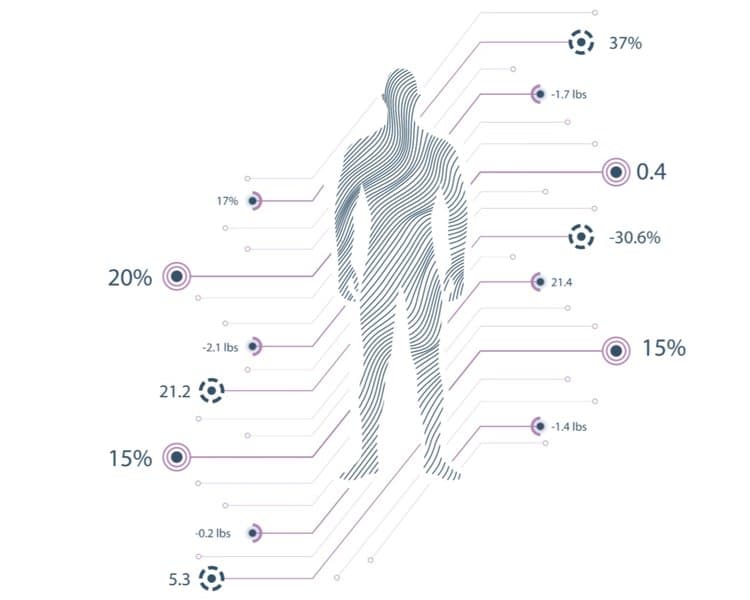In-home blood work is changing the way we keep track of our health. Instead of going to a clinic or hospital, you can now perform many blood tests right from your own home. This method is becoming more popular because it is easier, faster, and more private. Let's explore what in-home blood work is, how it works, and why it might be a good choice for you.
Key Takeaways
- In-home blood work allows you to conduct blood tests from the comfort of your home, making health monitoring more accessible and convenient.
- This method can help detect chronic diseases early, potentially preventing serious health issues down the line.
- In-home blood tests are generally easy to use and come with clear instructions, but it's important to follow them carefully to avoid errors.
- While convenient, not all blood tests can be done at home, and some situations still require a visit to a healthcare professional.
- The future of healthcare is likely to see more advancements in at-home testing, making it even easier for people to manage their health.
Understanding In Home Blood Work
What Is In Home Blood Work?
In home blood work allows you to collect blood samples from the comfort of your own home. This method provides a convenient alternative to traditional lab visits, making it easier for people to monitor their health without the need for frequent trips to a clinic. These tests can check for various conditions, such as diabetes, cholesterol levels, and even some types of cancer.
How It Differs From Traditional Blood Tests
Traditional blood tests usually require a visit to a medical facility where a healthcare professional draws your blood. In contrast, in home blood work involves using a kit sent to your home. You collect the sample yourself, often with a simple finger prick, and then send it back to a lab for analysis. This eliminates the need for appointments and long waits.
Common Tests Available for Home Collection
Several types of blood tests can be done at home, including:
- Complete Blood Count (CBC): Measures various components of your blood, such as red and white blood cells.
- Hemoglobin A1C: Monitors long-term blood sugar levels, useful for diabetes management.
- Lipid Panel: Checks cholesterol levels to assess heart health.
- Hormone Tests: Measures levels of hormones like testosterone and estrogen.
- Vitamin D Test: Determines if you have sufficient levels of this essential nutrient.
In home blood work is transforming how we approach health monitoring, making it more accessible and less stressful for everyone.
Advantages of In Home Blood Work
Convenience and Comfort
One of the biggest benefits of in-home blood work is the convenience it offers. You don't need to leave your home, which is especially helpful if you have limited mobility or a busy schedule. The process is designed to be user-friendly, with detailed instructions and pre-paid labels for mailing samples to the lab.
Time-Saving Benefits
In-home blood tests save you time by eliminating the need for office and lab visits. You can collect your sample at a time that suits you, and results are often available within a few days. This quick turnaround can lead to earlier diagnosis and treatment.
Privacy and Discretion
In-home blood work provides a level of privacy that traditional lab tests can't match. You can perform the test in the comfort of your own home, reducing any stigma-related fears. This is particularly beneficial for tests related to sensitive health conditions.
In-home blood work removes barriers to testing, making it easier for people with disabilities, limited access to medical facilities, or privacy concerns to monitor their health.
How In Home Blood Work Works
Step-by-Step Process
- Order Your Kit: Choose and order the blood test kit that suits your needs. Kits are available online and come with everything required for sample collection.
- Receive Your Kit: The kit will arrive at your home, typically within a few days. It includes detailed instructions, a lancet for pricking your finger, and a container for your blood sample.
- Collect Your Sample: Follow the instructions to collect your blood sample. This usually involves a simple finger prick to obtain a few drops of blood.
- Send Back the Sample: Use the pre-paid shipping label included in the kit to send your sample back to the lab. Ensure the sample is sent as soon as possible to maintain its integrity.
- Receive Your Results: Once the lab processes your sample, you will receive your results via email, an app, or mail, depending on the service provider.
Sample Collection Methods
- Finger Prick: Most at-home blood tests use a finger prick method. This involves using a small lancet to prick your finger and collect a few drops of blood on a test strip or in a small vial.
- Mobile Phlebotomist: For tests requiring larger blood samples, some services offer a mobile phlebotomist who will visit your home to draw blood professionally.
Interpreting Your Results
- Online Portal or App: Many services provide an online portal or app where you can view your results. These platforms often include explanations of what the results mean.
- Consultation: Some services offer the option to discuss your results with a healthcare professional, either through a phone call or video chat.
At-home blood tests make it easier to monitor your health without the need for frequent visits to a clinic. By following the simple steps provided, you can ensure accurate and timely results from the comfort of your home.
Accuracy and Reliability of In Home Blood Tests
Ensuring Accurate Results
Accuracy is paramount when it comes to in-home blood tests. These tests are designed to be as reliable as those conducted in clinical settings. The laboratories processing these samples are often CLIA-certified, ensuring they meet high standards for accuracy and reliability. Additionally, many at-home test kits include detailed instructions to minimize user error, which is crucial for obtaining accurate results.
Quality Control Measures
To maintain high standards, in-home blood test providers implement rigorous quality control measures. These include:
- Calibration: Laboratories are calibrated to handle both venous and capillary blood samples.
- Retest Guarantee: Some providers offer a retest guarantee, providing a new kit free of charge if the initial test is inconclusive.
- Regulation Compliance: Kits are often regulated as IVD medical devices, ensuring the preservation and integrity of samples.
Common Concerns and Misconceptions
There are several common concerns and misconceptions about the accuracy of in-home blood tests:
- User Error: While user error is a valid concern, following the provided instructions carefully can mitigate this risk.
- Sample Contamination: Proper handling and immediate return of the sample can prevent contamination.
- Limited Test Options: Although some tests may not be suitable for at-home collection, many common tests are available and reliable.
In-home blood tests offer a convenient and reliable alternative to traditional lab tests, provided that users follow the instructions carefully and the samples are processed in certified laboratories.
Choosing the Right In Home Blood Test Kit
Factors to Consider
When selecting an in-home blood test kit, there are several factors to keep in mind:
- Type of Test Needed: Different kits are designed for different tests, such as hormone levels, cholesterol, or vitamin deficiencies.
- Ease of Use: Look for kits with clear instructions and all necessary materials included.
- Turnaround Time: Some kits offer faster results than others.
- Accuracy and Reliability: Ensure the kit is from a reputable company with good reviews.
- Cost: Prices can vary widely, so consider your budget.
- Insurance Coverage: Check if your insurance will cover the cost of the kit.
Top Recommended Kits
Here are some of the top recommended in-home blood test kits:
| Kit Name | Price Range | Tests For | Results Timeline |
|---|---|---|---|
| Let's Get Checked | $89 - $249 | Hormone levels, STDs, wellness | 2 to 5 days |
| Everlywell | $49 - $199 | Food sensitivity, thyroid, vitamins | 5 to 7 days |
| myLAB Box | $79 - $299 | STDs, general health | 3 to 5 days |
Cost and Insurance Coverage
The cost of in-home blood test kits can vary significantly. Some kits may be covered by insurance, so it's worth checking with your provider. Additionally, many companies offer discounts or subscription services that can reduce the overall cost.
Choosing the right in-home blood test kit can make health monitoring more convenient and accessible. Always consider your specific needs and consult with a healthcare professional if you have any concerns.
Impact on Healthcare and Future Trends
Reducing Barriers to Care
At-home blood tests are breaking down traditional barriers to healthcare. They offer a convenient and accessible option for individuals who may have difficulty visiting a clinic, such as older adults or those living in remote areas. This ease of access can lead to better health outcomes by enabling more frequent monitoring and early detection of potential health issues.
Potential for Personalized Medicine
The data collected from at-home blood tests can be invaluable for personalized medicine. By regularly tracking various health markers, individuals can receive tailored healthcare plans that address their specific needs. This approach not only improves individual health outcomes but also helps in managing chronic conditions more effectively.
Future Innovations in Home Diagnostics
The future of home diagnostics looks promising with continuous advancements in technology. We can expect more sophisticated and user-friendly test kits that provide even more accurate and comprehensive health data. These innovations will further empower individuals to take control of their health and make informed decisions.
The convenience and accessibility of at-home blood tests are transforming healthcare, making it more inclusive and personalized. As technology advances, we can look forward to even more groundbreaking developments in home diagnostics.
Limitations and Considerations
When to Visit a Doctor
While in-home blood work offers many benefits, there are times when visiting a doctor is essential. Certain conditions require a professional's expertise for accurate diagnosis and treatment. If you receive abnormal results, it's crucial to follow up with your healthcare provider. Additionally, some tests may not be available for home collection and need specialized equipment or procedures only found in clinical settings.
Potential Drawbacks
In-home blood tests come with their own set of challenges:
- Insurance Coverage: Not all insurance plans cover at-home blood tests, which can make them costly.
- Handling and Storage: Improper handling or storage of samples can lead to inaccurate results.
- Availability: These services might not be available in all regions, limiting access for some individuals.
- Repeat Testing: Some positive results may require a visit to a healthcare professional for confirmation and further testing.
Addressing User Errors
User errors are a common concern with in-home blood tests. Drawing blood can be daunting and anxiety-inducing for many people. If not done correctly, the results can be inconclusive, requiring the collection process to be repeated. To minimize errors:
- Follow Instructions Carefully: Always read and follow the instructions provided with your test kit.
- Seek Help if Needed: If you're uncomfortable drawing your own blood, consider seeking assistance from a trained professional.
- Double-Check Details: Ensure that all information, such as labeling and storage conditions, is accurate before sending your sample.
In-home blood work is a convenient option, but it's essential to be aware of its limitations and take necessary precautions to ensure accurate results.
Conclusion
In conclusion, at-home blood tests are changing the way we think about health monitoring. They offer a simple, quick, and less scary way to keep track of our health. By making it easier to check for things like diabetes, cholesterol, and other conditions, these tests help us catch problems early. This can save lives and reduce the need for frequent doctor visits. As technology gets better, at-home blood tests will likely become even more common, helping more people stay healthy without leaving their homes. Always remember, though, to talk to a doctor if you get any unusual results.
Frequently Asked Questions
What is in home blood work?
In home blood work involves collecting blood samples from the comfort of your home. You use a special kit to take a small sample, usually through a finger prick, and then send it to a lab for analysis.
How is in home blood work different from traditional blood tests?
Traditional blood tests require you to visit a clinic or lab, where a healthcare professional draws your blood. In home blood work lets you collect the sample yourself at home and mail it to a lab, saving you time and effort.
What kinds of tests can be done with in home blood work?
You can test for many things, like cholesterol levels, blood sugar, thyroid function, and even certain genetic markers. These tests help you keep track of your health without frequent trips to the doctor.
Are in home blood tests accurate?
Yes, in home blood tests are designed to be accurate. Labs follow strict guidelines to ensure the results are reliable. However, it's important to follow the kit instructions carefully to avoid any errors.
What are the benefits of in home blood work?
In home blood work is convenient and comfortable. It saves you time, offers privacy, and helps you monitor your health regularly. It's especially useful for people with busy schedules or limited access to healthcare facilities.
When should I see a doctor instead of using an in home blood test?
You should see a doctor if you get abnormal results, if you have symptoms that worry you, or if you need tests that require more than a small blood sample. In home blood tests are great for regular monitoring, but they don't replace professional medical advice.
























